New Moon: The Devil I know
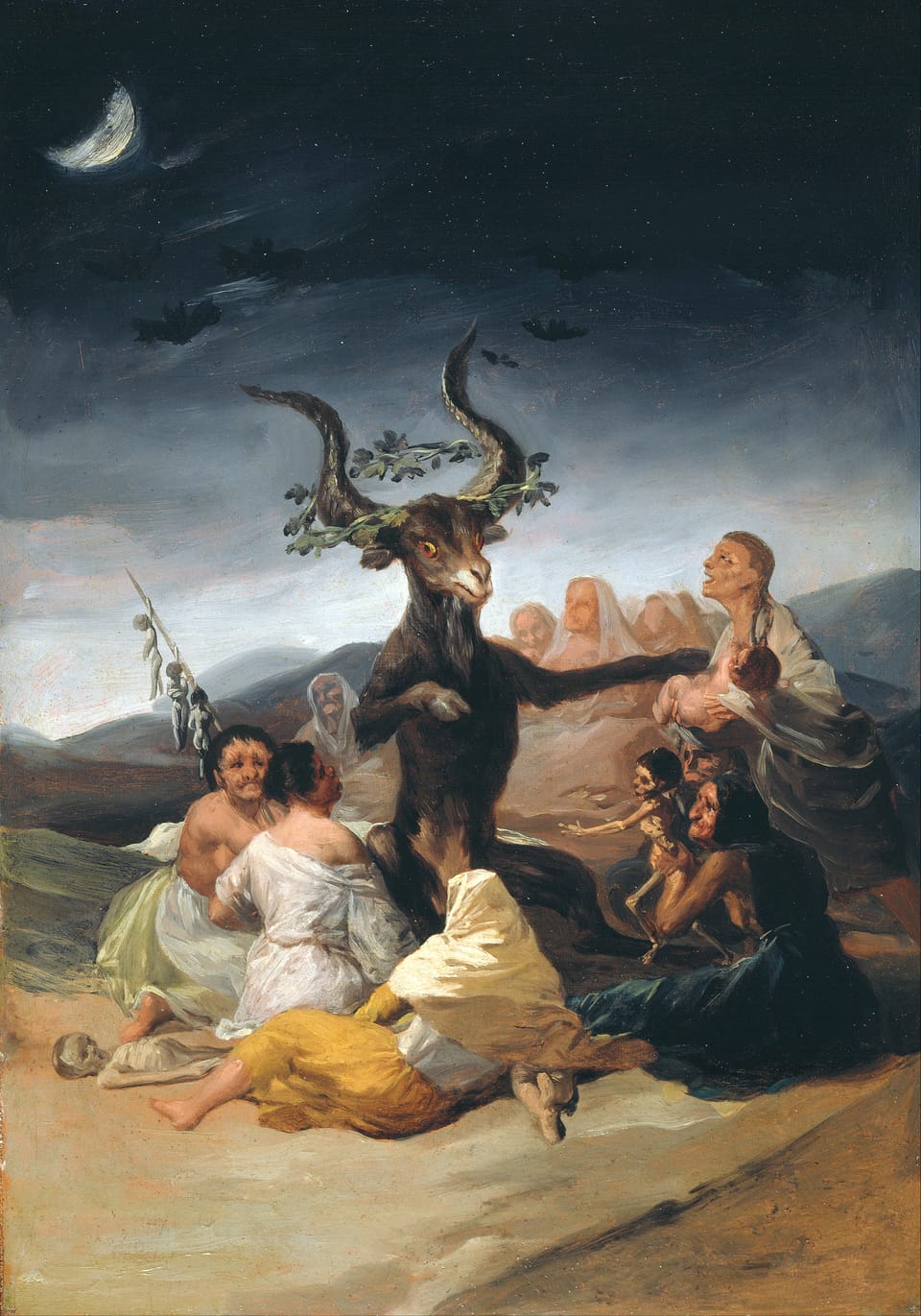
It's Friday. Hello. I'm coming back to some first principles of my rites this week, because for all the essays I've previously written about the Devil — as a liberatory lord of misrule, as a commercialized product of late capitalism, and in a few other guises that I've kept to posts for paid readers — it still occurred to me a couple months ago that I haven't explained my satanism from the ground up in any way that would help someone understand:
- Exactly why I am a satanist (or why I emphasize being a satanic witch) as opposed to the possibilities of embracing an occult, animist, or (neo)pagan ritual faith that completely eschews the language and imagery of Christianity; and
- What methods I would recommend that someone curious about satanism could try for studying or practicing it themselves.
In the case of item 1, I think I've certainly scattered many, many hints and more-than-hints throughout Salt for the Eclipse; however, I've skirted a straightforward discussion because I've felt uncertain about how much anyone wants to know the biographical how of my satanism vs. the ideological why. In the case of item 2, I've avoided this subject completely because many suggestions I could give from my own experience might be taken as a quasi-proselytizing exhortation for other people to embrace Satan in an identical manner to what I've done; and conversely, just referring someone to an external satanic organization or text is not possible, because I neither endorse nor trust any of these. Indeed, I've brought up external organizations a few times in this newsletter, but always as examples of satanism that distinctly is not my own.
However, I do have cherished friends whom I know or suspect are flirting with satanic matters for various reasons, and since I know that my practices don't occur in a void, I'm starting feel a responsibility to make my position as a satanist very transparent — so that if those who know I'm a satanist are being influenced by that very knowledge, then they won't draw the wrong conclusions about what that means for them. And more to the point: a few people in my life, including a subscriber here, have asked me recently "how to learn more about satanism" or "how to start satanic practice."
Since my honest answer would not just be that I don't know, I've written the following post especially for those individuals. I never expect people to read anything I've written if they aren't mildly curious to begin with, but in this case I wish to aggressively emphasize that if working with the Devil is still an uncomfortable idea in your existing ritual practices, skip this post as you please; I don't expect to convince you of anything, and I would worry if I could do so very easily.
With that disclaimer, though, I'm going to begin by dispelling some critical misconceptions with as simple language as I can manage, even if I've directly or obliquely dispelled some of these in the past.
Distinguishing characteristics of my satanism
There are multiple satanic schools of thought, and although my beliefs overlap with some of them, I don't have one clean adjective to summarize what makes "my version" unique, apart from the fact that only myself and one other person practice satanism within our chosen context. But as for that context, I'm compiling some features of my satanic beliefs into a list for easiest reading.
This is not an exhaustive catalogue, because many details of my cosmology are literally occult, too taboo to speak of outside my devoted household. Nonetheless, what I've included here should still be sufficient.
-
I am a theistic satanist as I do worship the Devil as a "real" god. I am also an atheist in the sense of refusing the existence of any omniscient, omnipotent, and all-benevolent deity that can be seen and interacted with in the ways that many "world religions" describe; however, I do believe in my god as an animistic force that a) dwells throughout the universe as a chaotic governing power, b) holds special sway as a solar spirit and a forest/pastoral/land spirit, c) is the object of my ritual devotion and the consensually agreed upon master of my own will, and d) can be both abstractly personified through art and directly (though temporarily) embodied during ritual.
-
I do view the Devil as an oppositional entity to the idea of the Christian god, or at least the Christian god as an authoritarian, imperial, anti-syncretic figure. This applies partly to my rejection of mainstream Catholicism as a colonizing vestige of the Roman Empire, and even more strongly to my views of Protestantism as the propaganda vehicle for capitalism, whiteness, and the pro-apocalyptic cult of letting the Earth die.
-
I do not have a position on whether the Devil as I know him is in any specific relation to Judaism, Islam, or other Abrahamic religions. I am vastly ignorant about most aspects of parallel Satans or Satan-like figures within those faiths, and I am not culturally in a position to use the Devil as a critique of them. I do not agree with people who were not brought up within Judaism or Islam using satanic opposition to Christianity as an excuse to make statements or gestures that are likely to legitimize antisemitic or Islamophobic ideas, whether or not these people knowingly harbor such ideas already.
-
I do syncretically blend the Devil with deities that pre-date Christian cosmology; they are all his faces, or his might equally be seen as one of theirs. In his rulership over the dark half of the year I find Satan reflecting or reflected in entities like Cernunnos, Gwyn ap Nudd, Óðinn, and (as discussed a few months ago for paid readers) Dionysos. In his rulership over the light half of the year I find him reflecting or reflected in entities like Lugus, Gwydion, Loki — though I have been sensing more and more about Freyr as well — and Apollon. He is also, year round, Arawn.[1]
-
I believe in the possibility of other gods although I have not sworn myself to any of them. An animist mindset virtually requires the sort of pluralism that gives rise to polytheism. I think that Satan and his many faces will for the foreseeable future be the exclusive recipient(s) of my ritual devotion, due to occult factors; but this exclusivity is in the way of being sworn as a keeper of one god's temple, not denying that other people should keep other temples. And in fact, part of my ritual devotion involves personally embodying an entity who is subservient to the one god but who carries goddesslike qualities of her own. Recently, I've also grown curious about how to listen to and honor other gods from my ancestry, cultural lineage, or (if explicitly invited) the land I live on,[2] even if I wouldn't be serving as their priestess.
-
I have performed a ritual in which I sold my soul, as I conceive of it, to the Devil. This was the initiatory step by which I became a witch devoted to Satan. I signed the Devil's book (my grimoire) in my own blood.
-
Rather than worship that which is evil, I believe the Devil is fundamentally chaotic, and that this is good. I do embrace imagery and language of many things which mainstream Christianity describes as evil, because I believe it's important to provoke when possible as a matter of culture-jamming. Nonetheless, I don't believe in shock tactics for their own sake; I'm anti-authoritarian, not misanthropic.
-
My belief in the Devil himself should not immediately suggest anything about ways I relate to magic or the supernatural. Those relations are highly complex in their own right, and for every thing that I do believe in under this heading, there is a thing that I vehemently don't. I won't derail with all of that here.
-
I gender the Devil as male and refer to him as "he/him," but this is not due to cultural use, and I have no problem with other people relating to him as other genders or with other pronouns. My male Devil is necessitated by the ritual roles that my owner and I each assume in our dynamic.
I hope the above is clear enough, because I don't want to ever leave others with illusions about my satanism that are informed by what some other satanists believe and practice. For instance, many people in ritualist spheres these days are aware of how the Church of Satan and the Satanic Temple are atheistic, treating the Devil as a metaphor for one's individualistic power and godlike agency; besides my ethical problems with both organizations, which I'll briefly reiterate later, I also think these interpretations of the Devil are political and theological failings. Unsurprising for the CoS, being itself a cult of capitalism, but despite TST's progressive trappings they are also bound by neoliberalism by perpetuating the capitalistic, Protestant-informed cult of the individual. (Bleakly hilarious, then, for their headquarters to be based in Salem, Massachusetts.)
There are likewise satanists who are racists (even eugenicists), or misogynists, or absolute monotheists, or hard skeptics, or wildly credulous, or obsessed with performing acts violence to the point they forget how to distinguish between violence and violation. My satanism has developed in opposition to these flavors just as much as to Christianity.
My satanism's development also has surely not finished. Despite my certainty about many things I just listed, I know there is room for change, and I must flow with the demands of sacred chaos. However, the amount of certainties I do have now — at the age of 36, not old but not really young either — speaks to the time I spent passing through other (spi)ritual mindsets before the Devil claimed me. I did not become a satanist before I'd been a few other things, and I suspect that my satanism was adopted with more maturity than I might have otherwise been capable of.
When — and why — the Devil called me
In past posts I've described some components of my earlier journey, and perhaps even laid out a full timeline. I can't find the latter if so. Here's the shortest summary I can give, even if it's still three paragraphs:
I was born to a militant atheist father from a heavily Catholic paternal line and a silently Jewish maternal line; I was born to a mother who was raised not terribly religiously among descendants of the Cymric Methodist tradition, and who for complex reasons had been baptized Russian Orthodox as an adult but was barely observant, and whose overall spirituality she does not much discuss. My father's views were able to predominate in my upbringing, so I spent years 0 to 13 thinking of religion as a mistake that other people around me made, encouraged to learn about what people believed but not to adopt those beliefs. I learned about Christian and Jewish scripture in particular, and because we had many Jewish friends and visited them I was sometimes a secular participant in events like Shabbat and Pesach; but if Judaism was my first glimpse of active faith, it was not part of my family identity (or so I thought).
At age 14, however, I began to have the predictable crises of teenage life, particularly with autistic and queer challenges, and this was set off by my parents' divorce and then exacerbated in a sociopolitical realm by the September 11th attacks. Everything I thought I understood was crumbling. My first of only a few mystic experiences took place; it was without the help of any drugs, only through meditation and a kind of self-motivated prayer. I saw a golden light stretched in relational ropes between me and all things. I pursued this through several routes for a few years, attracted by Buddhism, Islam, Bahá'i, New Age religious movements, and then Catholicism. This last option hooked me most strongly of any mainstream religion as a couple of my favorite writers (of that time) were staunchly though non-simplistically Catholic; and then I went off to college, discovered the Catholic chaplain was a heterodox, openly homosexual man operating at the very fringes of what Rome would tolerate, and his Mass was exquisite.
By the end of my first year there, I was baptized and confirmed. Simultaneously, however, I had started learning concepts and practices of (neo)paganism and witchcraft from friends on campus who were Wiccans or working in similar veins. A couple years later, partner abuse and existential recalibrating led me away from Catholicism semi-permanently, but while I would then spend my early to mid-20s identifying as an atheist again on anarchistic grounds — no gods, no masters — my witch friends' teachings and principles would rise again in my heart whenever I reconnected with any of them. Between this feeling and some things that had begun happening in my private life with my owner, by the time the two of us moved to our second apartment in 2015, I felt as though a reckoning was coming just like what happened with my gender a couple years prior.
2016 was that reckoning. Here's where my narrative with the Devil really begins. In 2016, David Bowie died. I don't think some other voices exaggerate when saying he may have been a load-bearing pillar for reality. Some people measure their lives now as pre-covid and post-covid, but for me, we're not living out the year 2020 forever. This is the eternal 2016.
After Bowie died, within just over a month my main activist outlet in labor organizing exploded in a catastrophic solidarity breakdown. During my recovery from that emotional violence, I watched Robert Eggers' The Witch at the local indie theatre. The film wasn't the catalyst so much as an affirming echo of an alchemical transformation. I was feeling pulled to something as magnetic and menacing as Black Phillip because my existing means of resisting capitalism had slipped out from under me; because in the months that followed, more human gods of my life were impossibly dying; because at our new apartment, we were near a hilltop park where I felt compelled to visit a particular tree and perform subtle honorings for the Wheel of the Year; because I had learned the latest ecological projections for this planet that, back then, not so many people were talking about as they'd be talking about in 2018; because come November, a laughably terrible presidential election had happened; because I was poor and mentally ill and could often only afford entertainments like music, suddenly the darker the better. There was definitely black metal involved by the time I determined that I was being called to not only dedicate myself to witchcraft, but to satanic witchcraft.
I say that last part a little glibly. Laying everything out like this, I can see very well how a concerned Christian would examine such developments and warn that Satan simply reached out to tempt a wounded soul. And a generalized skeptic would say that just because I felt all these inclinations did not mean the Devil was real, nor that my chosen coping mechanisms would be healthy for me. Luckily for the skeptic, at least, I would agree with them that for certain senses of "real" they're quite right that I'm not dealing with something real.
But while there are ways that satanism, like any (spi)ritual belief framework, can become an unhealthy tool for people who really need therapy or medicinal/somatic interventions — indeed, my most severe mental illness from 2018 through 2022 proves the Devil couldn't help me there, even if he also wasn't the problem — I have also been doing this work for long enough, and healing enough, that analyzing its origins does not lead me to the conclusion that I turned to the Devil looking for inverse, infernal salvation from various personal woes. Instead, things were happening in my life circa 2016 that, while personally damaging, mostly highlighted how my (spi)ritual questing had already led me to something I was overdue to name and create a language for.
Throughout the next year, 2017, I started writing out what that thing was in the first drafts of my grimoire, comparable to a Wiccan's book of shadows. I looked for a final confirmation that this was the correct path by undertaking a pilgrimage to solar eclipse totality in Greenville, South Carolina; as the Sun and the Moon made love before me, I was readied by the cosmos for the vow I was about to sign in a few more months.
Ever since that eclipse, and ever since that vow, I have continued to grow and find the right words for what I'm doing, what I'm living; half of it is always a matter where talking about the Devil doesn't make sense, reaching back for pre-Christian wisdom, but the other half is satanic because in my post-Christian context the knowledge and practices must inherently react to Christianity's effects upon the peoples of the earth. Somewhere in between, there's the liminal mystery of whether I could ever recover the animist/pagan-Christian syncretism that I had been exploring almost twenty years ago, and whether this would be contradictory to my satanism or a bizarre, trickster-like complement. I haven't worked that out yet.
None of this means that I think "proper" ritualists should all be worshiping Satan. If someone is interested in reconstructing practices exactly as they were practiced in the Iron Age or earlier, I would caution that for no-longer-indigenous cultures this isn't possible, and that even for indigenous cultures there is no reason to remain stagnant — but from this it does not follow that satanic symbolism must belong in your rites. If Satan does not resonate with you, there are other ways of reckoning with a post-Christianized era. This is both/and, not either/or.
However, I still feel some implicit pressure to over-justify the Devil's presence in what I do as a witch. For many decades of modern occultism and paganism, despite a common late 19th century organizational origin the self-described satanists and the self-described witches have operated separately, with the latter branching into reconstructionism and other dreams of a hypothetical past; because of the gendering of witchcraft and the femicidal function that early modern witch burnings did serve, who can blame someone for not wanting to embrace the very thing that Christianity accused witches of doing? For some people, that embrace will never be possible.
But my approach to the Devil mirrors my engagement with kink. I do not look away from darkness, but instead process many things through it. Let some people call my kind the Devil's brides; what if that were true? I will take the thing they fear, and make that my strength. I won't repeat the "nine million victims" myth, and I acknowledge that men were often killed in these trials as well, but I just mentioned femicidal witch burnings for my own reasons. I feel it's impossible to adequately refute Silvia Federici's argument that witch trials facilitated the process of capitalist enclosure both by literally stealing land and valuables from people who lived closer to the earth, and by murdering people whose inherited relational knowledge systems (the subjects of which happened to pass often from woman to woman, even if not all the victims were women or would have identified as them) that stood as counternarratives to capitalism's demands. Speaking for myself, my relationship to these past events is such that to embrace the term witch does imply the Devil's presence.
Perhaps in another context that's not how I would have conceived of things, but here we are.
"How to start"
As the above narrative should suggest, I cannot tell you how to start exploring satanism for yourself. I walked into it somewhat by intention, but it was highly personal, and I've kept it that way. There is no exercise I performed, no invocation that I spoke. I have felt the Devil's presence directly but I can't describe it to you in a way where you will know he's there if something matches my description. I have never read any books that were completely about satanism, and although I have a few on my mental reading list, that's only for academic curiosity long after the fact. I haven't gone to any classes. I have just performed seasonal rituals, uncovered a cosmology, written things, and operated in partnership with my owner, who has explored the Devil not to serve him but to embody him. Our dyadic process is not translatable to someone working alone.
I can at least reiterate some things you shouldn't bother with. The Church of Satan is again a right-wing, patriarchal, abusive organization; the Satanic Temple is meanwhile trying to present itself as a strictly legalistic entity fighting for abortion rights and religious freedom, but simultaneously as a spiritual foundation for leftists and liberals, and it's failing at both goals because it's also run by abusive people and because groups founded on insincere ironies will always collapse in the end. There are other groups, but since I know less about them, I can't endorse them, and frankly I don't trust any satanic organization that still relies on hierarchies instead of decentralizing.
Likewise, if you aren't bothering with the Church of Satan, then don't bother with reading founder Anton LaVey's satanic bible. And don't bother reading Aleister Crowley — at least not in earnest, as he's on my to-read list because I know he's influenced the intellectual foundations of what I practice, but Crowley's occultism covers broader areas than satanism and in any case Crowley himself was a repugnantly narcissistic, bigoted man. An anti-authoritarian Devil has no time for megalomaniacs.
But I don't wish to end my thoughts here in the spirit of negation. No, I can't tell you what a relationship with the Devil should look like or how you should build it, since it cannot match what I do. However, my suggestion for those who have felt this call is to go back earlier in this post and read through my satanism's distinguishing characteristics and figure out how you would answer questions about these same matters. Then go out and live for a few months, or a few years, and through whatever delivery methods you like try to uncover the stories about the Devil that will be useful to you in forging a bond with him (or her, them, etc.) and sorting out a satanic cosmology. Then start telling your own stories, whether through nonfiction or fiction, through grimoires or poems, through text or visuals, through something public or something private. Creating your own narrative may give you what you need to finally try ritual engagement.
Whatever you come up with won't be what I do, but you will have arrived at it through the same exploratory structure. This is similar how I can't teach anyone my witchcraft in general, I can only speak in places such as this about how I view witchcraft and ritualism; from this, people may bring that perspective to their own rites if they wish.
If I can exhort any guideline of real substance, though, let me paraphrase Practical Magic of all things:
You cannot deal in satanism while also turning up your nose at it.
This occult landscape is like any other in that regard, but maybe even moreso because of how it is, yes, transgressive, and more dangerous than other modalities as a result. Of course, the Devil has all the best jokes just like he has all the best tunes, so this doesn't mean staying serious at all times; but telling someone to lighten up with their practices is at this point low-hanging fruit on the tree of ritual advice. I think it's important to go a step further. Don't be bombastic, don't lean in to melodrama, but don't talk yourself out of your own satanism by growing self-conscious either.
There is no value in worshiping someone, or something, at merely half of the intensity that your united mind and body are aware that they want. If it weren't rather apparent here, I disagree with the concept of fitting ritualism around the rest of your life. You aren't to blame if "the rest of your life" interferes with factors outside your control, and with those interferences you are no less serious a practitioner than someone you saw online who seems to be living and breathing their rites; but if you know that you need your rites to hold a central space in your life, then there is no "fitting" to be done. Put the rites there and let other things move to the side. Do not let your genuine opportunities to partake in your quest be sidelined by the things you really can choose to refuse. Realign your priorities, or don't.
If that exhortation sounds a little like some call to Christ, then the note I will end on is a reminder that the consequences of exploring a faith like my own in half-measures are not that you will go to hell, or that you should feel guilt. I'm only explaining operational realities: the effort you put into a thing is ideally the fuel for the reward you will get, and if you don't give much then neither will you take.
As much as I love the Devil I know, the most important thing to understand as an outsider is that it's the works I perform as expressions of faith that have done more for me than the faith itself. That wouldn't make Protestants very happy, but that's a lovely coincidence... even if they might be right about Satan and popery apparently going together.
[1] Fellow Cymric folklore lovers may wonder of course why I draw distinctions between Cernunnos, Gwyn ap Nudd, and Arawn. Ultimately I don't, since as discussed these are just three names for the same being. However, I do see these separate aspects to engage with. To me, Cernunnos and Gwyn ap Nudd each belong to the dark half of the year, but it is with Cernunnos as the antlered god of the autumn rut, a being where death and sexuality are woven together; Gwyn ap Nudd is meanwhile more of a pure death god, leader of the Wild Hunt. Aside from these two aspects, I speak of Arawn as a year-round solar god insofar as he is the king of the Otherworld as much as he is the king of this world; any hour that his light does not shine here, it shines beyond the veil instead.
[2] Having said all this, I find it doubtful that I will ever claim the label "polytheist" for myself. I would rather lay emphasis on animism or paganism: relationality in counter-modern, counter-industrial contexts. Polytheism itself is able to operate comfortably within imperialism, e.g. the Roman Empire, and so while I consider "polytheist" a rather neutral concept (not a negative one), I would prefer to describe my (a)theistic beliefs in a more openly eco-radical way.
This ended on an entirely unanticipated twist for me, but I hope it made for good reading. Thank you for your time and patronage. Next week for the First Quarter I'm exploring concepts of domestic and ecological hygiene; the week afterward will be a second First Quarter post due to lunar timing, but it will concern the craft of smithing and be for paid readers only.
Be well.
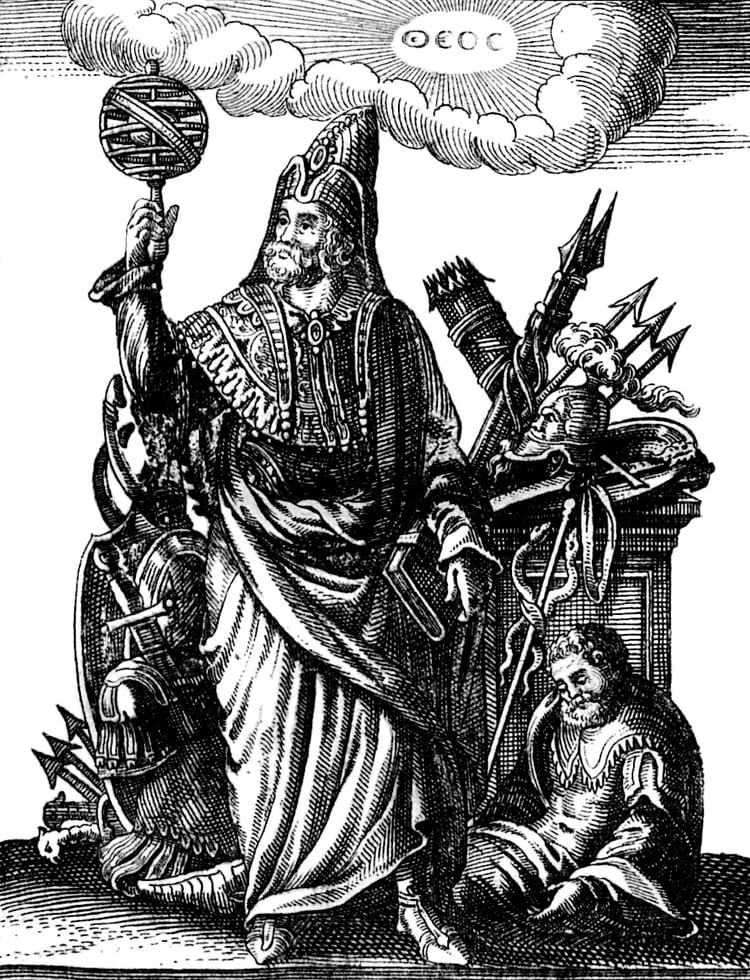
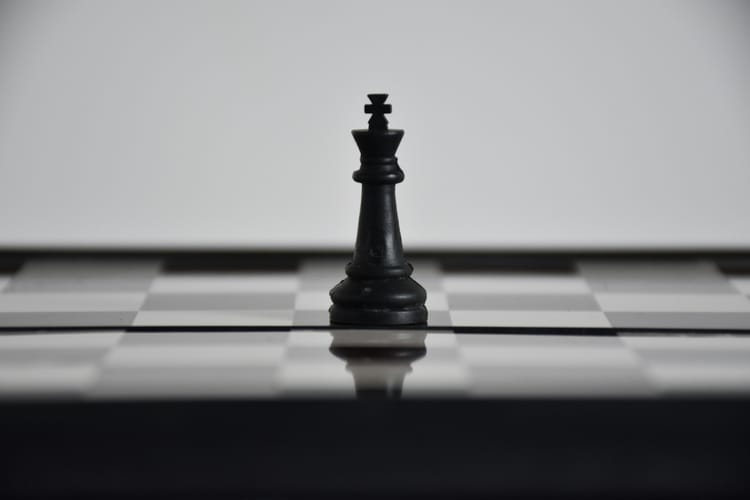
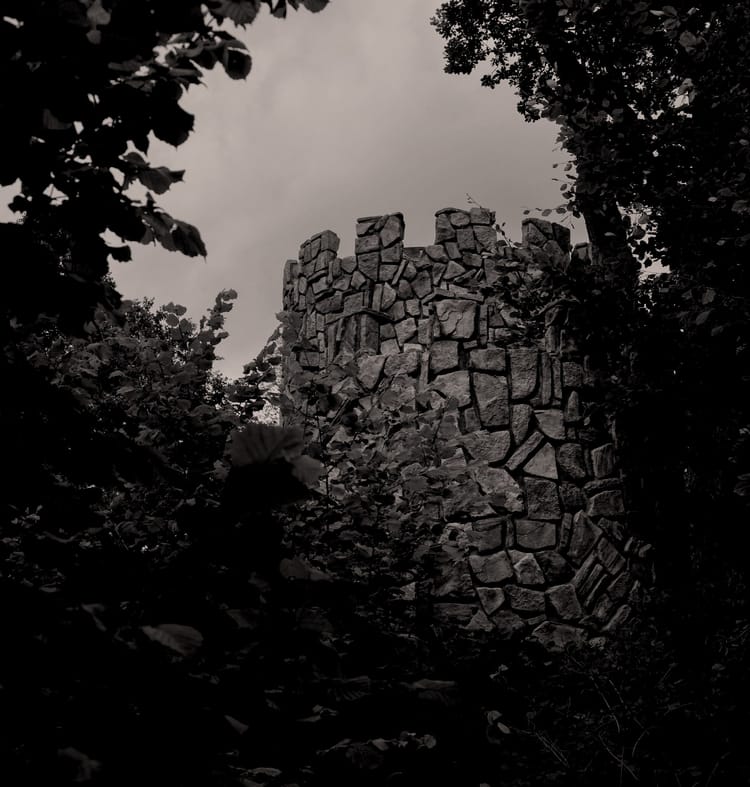
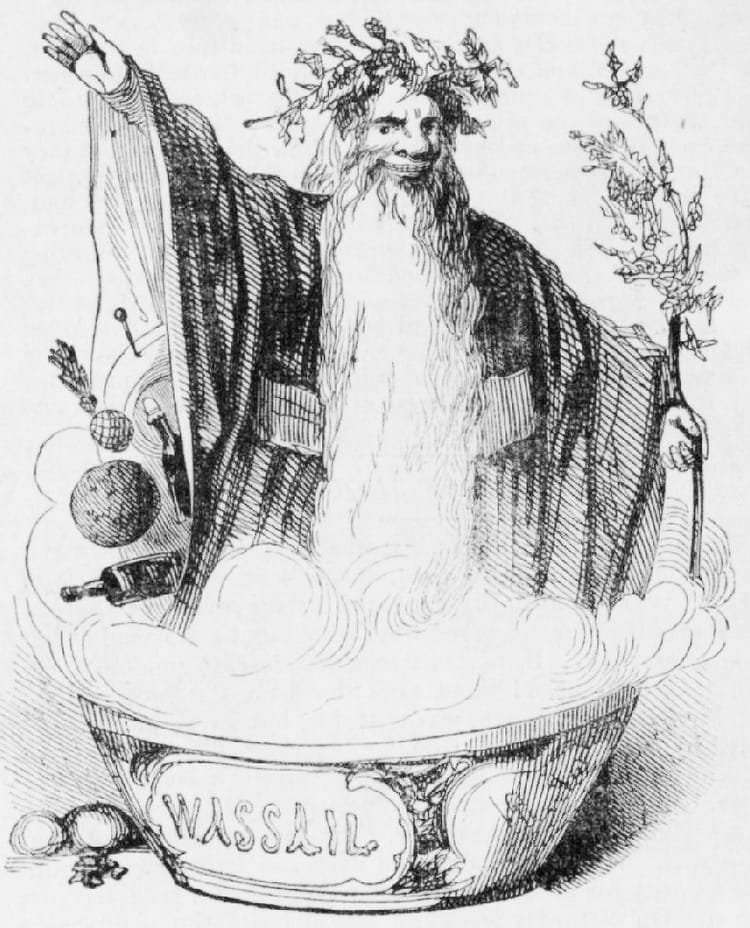
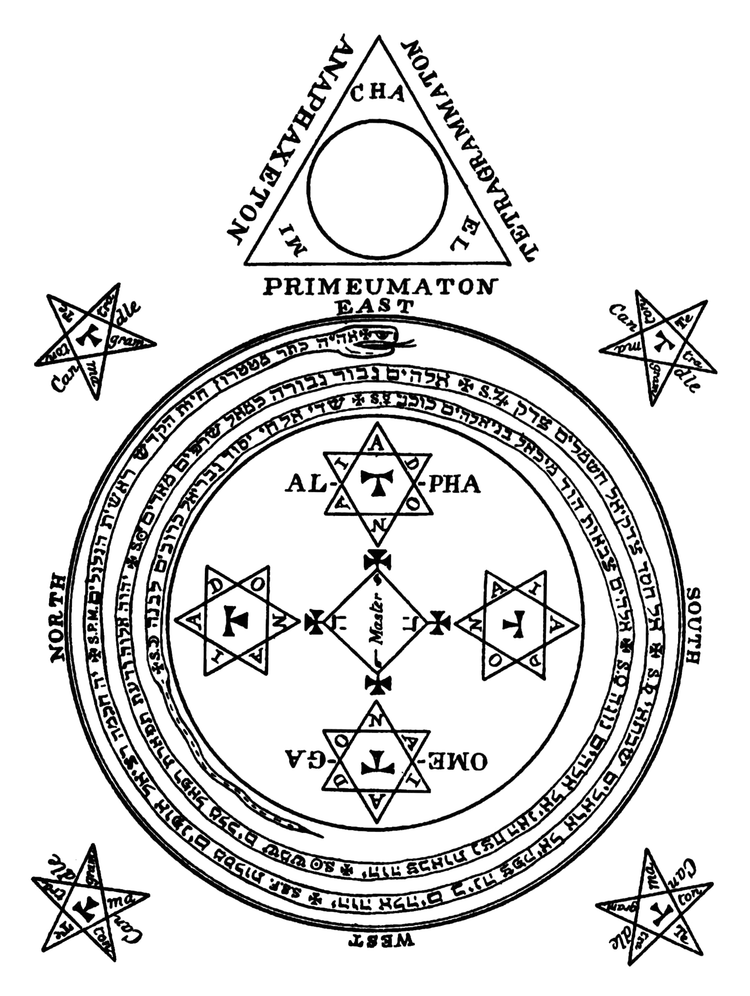
Member discussion